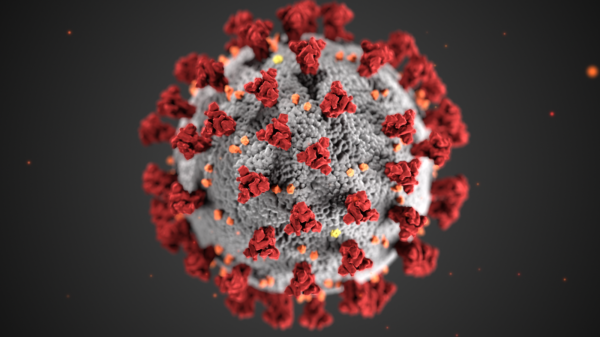Insulin is an important hormone that takes part in different cellular processes such as fat, carbohydrates, and protein metabolism, as well as cell growth. The essential function of insulin is glucose utilization, wherein the hormone promotes the entry of glucose inside the cell for energy production. Without insulin, the sugar levels in the blood can cause harmful effects and may lead to Diabetes Mellitus if not addressed immediately.
Resistance happens when the person’s cells suddenly stop responding to insulin signals which then causes the body to compensate by producing more insulin. Over time, continued hormone production causes the pancreas to wear out, and blood glucose levels continue to rise.
Signs And Symptoms
Unfortunately, insulin resistance has no specific signs and symptoms.
Causes
Resistance to insulin can be a result of different causes such as medications that have components which directly affect cell signaling, or because of genetics and race. Take note that you always see insulin resistance with the following:
- Obesity: a chronic medical disease caused by excessive eating and being overweight.
- Extreme stress: may be caused by a person’s lifestyle, environment, or relationships with family and friends.
- Increased Fructose levels decrease insulin sensitivity and contribute to resistance.
- Visceral fat: may cause the release of free fatty acids that triggers insulin resistance.
- Pregnancy
- A sedentary lifestyle paired with being overweight.
- Free fatty acids: there is a reduction in proper cell response to insulin, which can continue to the development of NIDDM (non-insulin-dependent diabetes mellitus).
- Continued steroid use
- Grave sickness and infections
- Gut Bacteria: the healthy bacterial environment in the gut causes unwanted inflammation if disrupted by sudden illnesses or diseases.
Different Laboratory Tests To Diagnose And Determine Insulin Resistance
A laboratory test helps your physician diagnose, screen, or monitor a suspected disease and condition. In insulin resistance, blood is drawn to determine hormone levels. A health practitioner cannot rely on only one test; that’s why they rely on the patient’s overall clinical status if they suspect insulin resistance. The following are the routine lab tests that aid physicians in proper diagnosis:
| Description | |
| Glucose Test/ Fasting Blood Sugar |
|
| Oral Glucose Tolerance Test (OGTT) |
|
| HbA1c/Hemoglobin/A1c/ Glycohemoglobin test/ A1c |
|
| Lipid Profile |
Conduct a direct LDL test if TAGs is abnormally high. |
| Homeostatic Model Assessment (HOMA) |
|
| Fasting Insulin Test |
|
| High-sensitivity C-Reactive Protein (hs-CRP) |
|
| Insulin Tolerance Test (ITT) |
|
| Quantitative Insulin Sensitivity Check Index (QUICKI) |
A specific equation calculates results from insulin and glucose tests. |
Foods That Help Combat Insulin Resistance
Insulin resistance automatically puts you at risk for metabolic syndrome and type II diabetes. Lucky for you, insulin resistance may serve only as a warning, which is why most health practitioners encourage an alteration in the patient’s lifestyle. This plan further prevents the development of diabetes or metabolic syndrome.
1. Fresh, Uncanned Fruits
Refrain from buying canned fruits because these products lack the fiber exclusively found in fresh produce. In addition to this, the manufacturers remove fruit skins which also contain added vitamins and minerals. The following are fruits rich in fiber:
- Peaches
- Berries
- Bananas
- Grapes
- Plums
- Apples
Take note that you should not opt for fruit-flavored drinks because they are high in sugars (comparable to sodas).
2. Fishes Rich In Omega-3 Fatty Acids
Omega-3 Fatty Acids have numerous benefits with heart diseases, specifically regarding triglycerides, blood pressure, HDL, Blood clot formation, arterial plaques, and inflammation. Here are fish you should consider making a part of your grocery list:
- Salmon
- Mackerel
- Sardines
- Tuna
- Herring
- Rainbow trout
3. Fresh, Uncanned Vegetables
An ideal component combo for preventing insulin resistance is low calories plus high fiber, which is present in most vegetables. These components significantly help reduce and lower blood sugar. Juice forms are also healthy but don’t offer as much fiber as the fresh ones.
- Tomatoes
- Asparagus
- Carrots
- Leafy greens (kale, cabbage, etc.)
- Cruciferous vegetables (broccoli, cauliflower, Brussels sprouts)
4. Whole-Grain Foods
Although many people think that they should avoid all types of carbohydrates, whole grains have vitamins, minerals, and fibers important in the prevention or remedy of insulin resistance. Keep in mind that you should choose unprocessed products. You may combine grains with proteins and fats to decrease the chances of an abrupt increase in glucose levels.
- Oatmeal
- Corn
- Brown rice
- Whole wheat
- Quinoa
Foods That You Should Avoid
The main point of customizing a diet is to avoid unwanted increases in your blood sugar levels. As mentioned, continuous spikes in the blood sugar levels eventually wear out the pancreas and cause insulin resistance. Make sure you avoid the following for a healthy lifestyle:
- Sugary drinks: avoid juice forms of fruits and vegetables, sodas, chocolate drinks.
- Alcohol: avoid beer and grain alcohol.
- Vegetables: avoid products that are high in starch.
- Processed foods: snacks, easy-to-cook products, cereals, cakes, biscuits, etc.
- White rice and bread
- Pasta
- Anything fried, even if you use vegetable oil
- Desserts
Additional Measures To Reduce Insulin Resistance
In line with a healthy diet, you can do the additional actions which can ultimately reverse insulin resistance.
- Have an active and healthy lifestyle by frequently exercising.
- Focus on reducing fat, especially around the waist area.
- Do not smoke.
- Incorporate supplements into your diet.
- Get enough sleep.
- Don’t stress yourself out.
- Try intermittent fasting.
- Get monthly check on your organs: kidneys, liver, heart and eyes etc.
Overall, don’t forget to always consult your physician before taking action to maintain insulin resistance.































































You must be logged in to post a comment Login